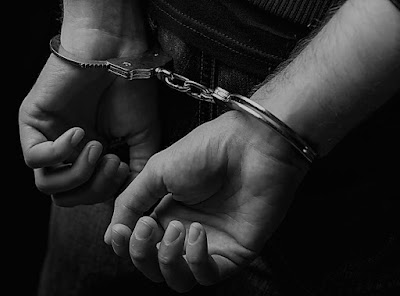Writing about Trauma: Story and Reflection

Violent assault shocked the local community. (Photo: IStock)
Man sentenced to 25 years after attack in
Merrytown
What could have been just another day in Merrytown
almost ended up in tragedy. On the last July 27, journalist Amy Smith* was
brutally attacked while walking their dog, just a few blocks away from their
house on Foote Street.
The perpetrator, John Boda, was a local
resident and had been involved in numerous petty crimes as a teenager. As he grew
order, his offence escalated and eventually included car theft, assault and
robbery. He served 10 years in the state of Texas, after which he returned to
Merrytown.
On the day of the attack, Boda got into a heated
argument with his girlfriend and the neighbors called the police. He ran out
the back door and went looking for a vulnerable target to leash out his anger.
Smith was walking down the street with the help of a cane when Boda assaulted them.
The victim thought at first it was a
robbery, until the offender started threatening them with a knife and trying to
get them to go with him. “If I had had any doubts, I knew then that he did not
want or expect money from me, that he wanted to do something else to me in the
woods,” they said.
Boda and the victim engaged in a physical
struggle that ended up with Smith falling on the ground with the perpetrator on
top of them. A local resident saw Boda on the ground but did not immediately
see the victim. As he got closer, he realized what was happening and jumped in
to immobilize Boda, giving the victim a chance to escape and run home.
At that point, Smith was covered in blood
from trying to hold the knife, their head was gushed from the fall and they had
multiple scrapes and abrasions. Their mother called 911 and they were rushed to
the hospital.
Judge Thomas Eveland sentenced John Boda to 25 years in prison after today’s trial. The fact that Boda’s father is a valued member of the community, as his lawyer argued, did not help reduce his sentence. Despite Eveland’s stance as a lenient judge, he ultimately decided, after listening to the victim’s statement, that it wouldn’t be safe to let Boda return to society any time soon.
The local community is shaken after the incident. It will be a while before the residents of Merrytown feel safe to walk on the streets again. Amy Smith is picking up the pieces and trying to make sense of the gratuitous violence that they experienced. “I am very, very lucky to be alive and able to be here to tell you my story. Boda is also lucky that he was not able to continue and face a rape and/or murder charge. But I would not trust to luck again to keep Boda from hurting someone else. Boda is clearly capable of doing extreme harm to others. For his sake as well as for society’s, he needs to be kept from hurting other people again,” they said.
*Name
changed to protect identity.

Some wounds don't bleed. (Photo: Getty images)
Writing about Trauma
Humans are naturally curious. While people
might not enjoy the idea of tragedies happening, when they do happen, they have
a natural inclination to want to know all the details. It is a journalist’s
role to answer the questions the public would like to ask, while being
considerate with the victim’s pain and trauma.
As a journalist, it is important that you
put yourself in that person’s situation before deciding which questions to ask.
You should also communicate clearly about what you intend to say in your story.
If the victim asks you to leave something out, you should honor the promises
you make them. It is also crucial that you get all the details right. Misspelling
the victim’s name or providing other inaccurate details can add insult to injury.

Comments
Post a Comment